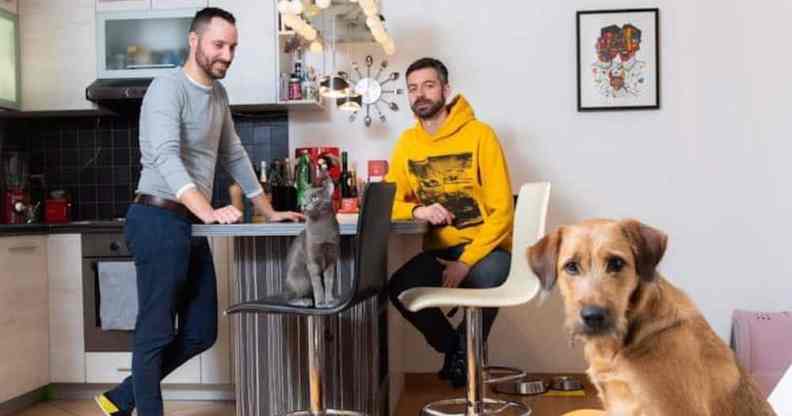Gay Croatian couple’s five-year legal battle ends as judge rules they should be allowed to adopt

Ivo Šegota, a molecular biologist, and Mladen Kožić, a sociologist, became the first-ever same-sex foster parents in Croatia last year. (Facebook/ Ivo Šegota)
A court in Croatia has ruled that same-sex couples should be allowed to adopt, bringing to an end a gay couple’s five-year battle for their rights.
Ivo Šegota, a molecular biologist, and Mladen Kožić, a sociologist, became the first-ever same-sex foster parents in Croatia in 2020, having launched a legal battle after their fostering application was initially denied in 2017.
The ruling that allowed them to foster has now paved the way for same-sex adoption in Croatia.
According to Openly, on 21 April Zagreb’s administrative court ruled that same-sex couples should not be discriminated against when it comes to state adoption.
The government has the right to appeal the ruling within 15 days of receiving the judgement, but this seems unlikely as a spokesperson told Openly in a statement that it would not comment until the ruling is “non-appealable and final”.
A lawyer for Šegota and Kožić said: “There are children which need their attention, their love. Give my clients this right and give the children this right to be in a family they want.”
Daniel Martinovic, head of Croatia’s Rainbow Families Association (RFA), said: “I feel really relieved that this odyssey, that lasted so many years, has finally hit [its] conclusion.”
The couple are registered life partners, meaning they have many – but not all – of the same rights as mixed-sex couples
While Croatia introduced same-sex “life partnerships” in 2014, the Catholic church remains a powerful force in the country.
Last year, when the court allowed Šegota and Kožić to become foster parents, 64 per cent of Croatians were opposed to the ruling, and an effigy of a same-sex couple carrying a child was even burned in front of a cheering crowd.
The couple said at the time that by going public with their story, they hoped to show Croatia that same-sex couples are not “some kind of monsters, aliens imported from the West”.
They added: “It has become about us, politics, views, stigmas. But it’s not about us. It’s about those… children who deserve better care and, due to the poor work of institutions, are losing their future.”

